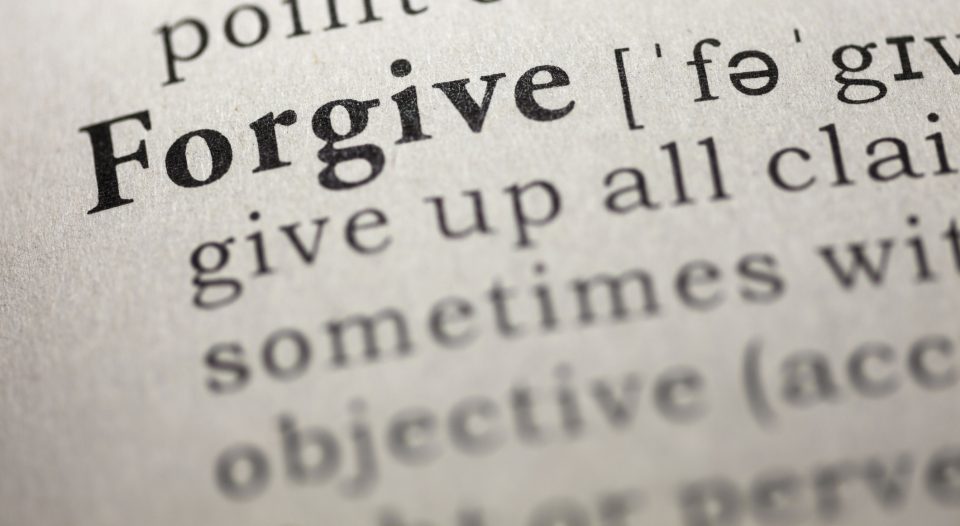Lectionary for Sept. 17, 2023
16th Sunday after Pentecost
Genesis 50:15-21; Psalm 103:8-13;
Romans 14:1-12; Matthew 18:21-35
Probably one of the most difficult parts of following Jesus is the forgiveness. We are certainly tempted to be self-righteous and judge others, never forgiving those who wrong us or the people we love. But we must contend with the example of Jesus, who worked salvation for those who followed him during his earthly ministry, for Paul who persecuted him, and for the Romans who crucified him. We aren’t allowed to receive grace and then deny it to others. We have three powerful examples of this principle from Scripture this week.
In Genesis 50, we read of Joseph’s response to his father’s death. Unsurprisingly, his brothers were frightened because decades earlier they had debated whether to kill Joseph or sell him into slavery. Joseph spent several years in slavery, and even more in prison, before being released and elevated by Pharaoh. He then sought to reunite with his beloved little brother Benjamin and his father Jacob. But after their father’s death, would Joseph at last enact vengeance on his brothers for the years of torment they had caused?
Joseph led an emotional reconciliation with his distressed family members. He reminded his brothers that they had intended evil toward him, but God had turned the situation around for good, to preserve life (20). Joseph not only forgave his brothers but also promised to provide for their descendants, comforting them and speaking kindly to them (21).
A quick aside, biblically speaking human forgiveness is no more (and no less) than foregoing the right to repayment or vengeance. It doesn’t mean to forget wrongs or pretend as if they didn’t happen. We use the phrase “forgive and forget” often in English. I think that can be useful for reminding us that “forgiving” and “forgetting” are two very different things. We aren’t instructed to naively forget ways that we have been harmed. Joseph certainly did not. But we are challenged to forego punishment and/or collection of debts.
I don’t think we are called to line up for abuse or allow people to keep hurting us after they have proven themselves to be unsafe. But we are absolutely called to forgive and forego the right of revenge/repayment against folks who have harmed us.
Turning to the Gospel, Peter asked the question that was on many of our minds after last week’s readings: is there any forgiveness for people who were expelled because they refused to repent of their sins that harmed the community? Peter offered a generous amount of seven do-overs when someone sinned against him. Perhaps he expected Jesus to say that seven seemed about right (I certainly have given people who hurt me far fewer chances). Rather, Jesus multiplies Peter’s answer to show the limitless nature of God’s willingness to forgive us. Indeed, the psalmist says:
[God] has not dealt with us according to our sins,
Nor rewarded us according to our guilty deeds.
For as high as the heavens are above the earth,
So great is His mercy toward those who fear Him
(Psalm 103:10-11; New American Standard Bible).
Yet Jesus argues that there is a limit to even God’s forgiveness, which isn’t based on the number of times we sin (thank heaven!!!) but on human hypocrisy.
Jesus told the parable of a slave who was forgiven an astronomical debt by his master. That same slave then went and physically abused someone who owed him a large but not impossible debt (the ratio of the debt to the master versus the debt to the slave was about 500,000 to 1). Many people observed this hypocrisy of the man who had been forgiven so much but was unwilling to forgive a much smaller debt. They reported the shameful behavior to the master, who called in the original debt and handed the slave over to professional torturers until the debt of almost 200 years’ worth of work was repaid. Jesus points to an unescapable point in this parable by saying that this is what God will be like if we don’t forgive our siblings.
In the prayer that Jesus taught his disciples, we say: “Forgive us our sins/debts/trespasses as we forgive those who sin/incur debts/trespass against us.” There is a reciprocal nature to grace and forgiveness. I don’t think we are called to line up for abuse or allow people to keep hurting us after they have proven themselves to be unsafe. But we are absolutely called to forgive and forego the right of revenge/repayment against folks who have harmed us. This is one of the most difficult parts of being a Christian, but it’s also one of the most central.






